Gamification
Practical Guides for Librarians
 About the Series
About the Series
This innovative series written and edited for librarians by librarians provides authoritative, practical information and guidance on a wide spectrum of library processes and operations. Books in the series are focused, describing practical and innovative solutions to a problem facing todays librarian and delivering step-by-step guidance for planning, creating, implementing, managing, and evaluating a wide range of services and programs.
The books are aimed at beginning and intermediate librarians needing basic instruction/guidance in a specific subject and at experienced librarians who need to gain knowledge in a new area or guidance in implementing a new program/service.
 About the Series Editor
About the Series Editor
The Practical Guides for Librarians series was conceived by and is edited by M. Sandra Wood, MLS, MBA, AHIP, FMLA, Librarian Emerita, Penn State University Libraries. M. Sandra Wood was a librarian at the George T. Harrell Library, the Milton S. Hershey Medical Center, College of Medicine, Pennsylvania State University, Hershey, PA, for over thirty-five years, specializing in reference, educational, and database services. Ms. Wood worked for several years as a development editor for Neal-Schuman Publishers.
Ms. Wood received an MLS from Indiana University and an MBA from the University of Maryland. She is a fellow of the Medical Library Association and served as a member of MLAs Board of Directors from 1991 to 1995. Ms. Wood is founding and current editor of Medical Reference Services Quarterly , now in its thirty-fifth volume. She also was founding editor of the Journal of Consumer Health on the Internet and the Journal of Electronic Resources in Medical Libraries and served as editor/coeditor of both journals through 2011.
Titles in the Series
1. How to Teach: A Practical Guide for Librarians by Beverley E. Crane.
2. Implementing an Inclusive Staffing Model for Todays Reference Services by Julia K. Nims, Paula Storm, and Robert Stevens.
3. Managing Digital Audiovisual Resources: A Practical Guide for Librarians by Matthew C. Mariner.
4. Outsourcing Technology: A Practical Guide for Librarians by Robin Hastings
5. Making the Library Accessible for All: A Practical Guide for Librarians by Jane Vincent
6. Discovering and Using Historical Geographical Resources on the Web: A Practical Guide for Librarians by Eva H. Dodsworth and L. W. Lalibert
7. Digitization and Digital Archiving: A Practical Guide for Librarians by Elizabeth R. Leggett
8. Makerspaces: A Practical Guide for Librarians by John J. Burke
9. Implementing Web-Scale Discovery Services: A Practical Guide for Librarians by JoLinda Thompson
10. Using iPhones and iPads: A Practical Guide for Librarians by Matthew Connolly and Tony Cosgrave
11. Usability Testing: A Practical Guide for Librarians by Rebecca Blakiston
12. Mobile Devices: A Practical Guide for Librarians by Ben Rawlins
13. Going Beyond Loaning Books to Loaning Technologies: A Practical Guide for Librarians by Janelle Sander, Lori S. Mestre, and Eric Kurt
14. Childrens Services Today: A Practical Guide for Librarians by Jeanette Larson
15. Genealogy: A Practical Guide for Librarians by Katherine Pennavaria
16. Collection Evaluation in Academic Libraries: A Practical Guide for Librarians by Karen C. Kohn
17. Creating Online Tutorials: A Practical Guide for Librarians by Hannah Gascho Rempel and Maribeth Slebodnik
18. Using Google Earth in Libraries: A Practical Guide for Librarians by Eva Dodsworth and Andrew Nicholson
19. Integrating the Web into Everyday Library Services: A Practical Guide for Librarians by Elizabeth R. Leggett
20. Infographics: A Practical Guide for Librarians by Beverley E. Crane
21. Meeting Community Needs: A Practical Guide for Librarians by Pamela H. MacKellar
22. 3D Printing: A Practical Guide for Librarians by Sara Russell Gonzalez and Denise Beaubien Bennett
23. Patron-Driven Acquisitions in Academic and Special Libraries: A Practical Guide for Librarians by Steven Carrico, Michelle Leonard, and Erin Gallagher
24. Collaborative Grant-Seeking: A Practical Guide for Librarians by Bess G. de Farber
25. Story-Time Success: A Practical Guide for Librarians by Katie Fitzgerald
26. Teaching Google Scholar: A Practical Guide for Librarians by Paige Alfonzo
27. Teen Services Today: A Practical Guide for Librarians by Sara K. Joiner & Geri Swanzy
28. Data Management: A Practical Guide for Librarians by Margaret E. Henderson
29. Online Teaching and Learning: A Practical Guide for Librarians by Beverley E. Crane
30. Writing Effectively in Print and on the Web: A Practical Guide for Librarians by Rebecca Blakiston
31. Gamification: A Practical Guide for Librarians by Elizabeth McMunn-Tetangco
Gamification
A Practical Guide for Librarians
Elizabeth McMunn-Tetangco
Practical Guides for Librarians, No. 31
ROWMAN & LITTLEFIELD
Lanham Boulder New York London
Published by Rowman & Littlefield
A wholly owned subsidiary of The Rowman & Littlefield Publishing Group, Inc.
4501 Forbes Boulevard, Suite 200, Lanham, Maryland 20706
www.rowman.com
Unit A, Whitacre Mews, 26-34 Stannary Street, London SE11 4AB
Copyright 2017 by Rowman & Littlefield
All rights reserved . No part of this book may be reproduced in any form or by any electronic or mechanical means, including information storage and retrieval systems, without written permission from the publisher, except by a reviewer who may quote passages in a review.
British Library Cataloguing in Publication Information Available
Library of Congress Cataloging-in-Publication Data Available
ISBN 978-1-4422-7913-1 (pbk : alk. paper)
ISBN 978-1-4422-7914-8 (electronic)
 The paper used in this publication meets the minimum requirements of American National Standard for Information SciencesPermanence of Paper for Printed Library Materials, ANSI/NISO Z39.48-1992.
The paper used in this publication meets the minimum requirements of American National Standard for Information SciencesPermanence of Paper for Printed Library Materials, ANSI/NISO Z39.48-1992.
Printed in the United States of America
Preface
Gamification , or the application of game attributes to non-game settings, has gained momentum in many fields in recent years, and its easy to see why. After all, anyone who has lost track of time in the middle of a board game or soccer match can testify that games can be highly engaging. Games in libraries are not a new conceptmany libraries provide board and video game collections, and library instruction sessions often include games such as modified versions of Jeopardy! or scavenger hunts designed to teach students about library services.
Gamification takes this promise of engagement one step further to deploy games as tools. The hope is that if something is fun, people will want to do it. This exchange of work for enjoyment, however, opens some gamification initiatives to suggestions of manipulation. Are you returning books on time because you are a responsible library patron, for instance? Or are you just doing it because you want to win points? Worse still, there is an abundance of evidence to show that peoples interest in activities plummets when added rewards are removedeven if those same people had previously been participating in the activities for sheer enjoyment. Games and gamification efforts skate on the blade of these issues, and in planning them, you need to consider why games are a good venue for accomplishing what you want for your library and your patrons.
Next page
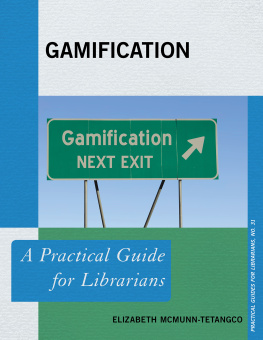
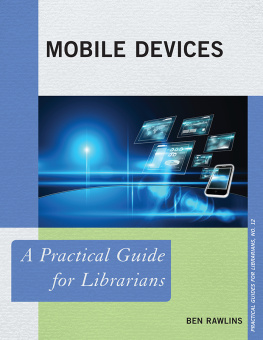
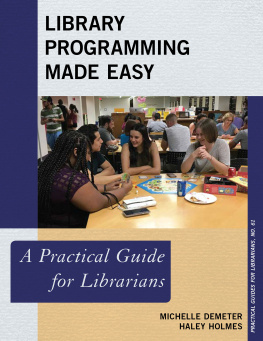

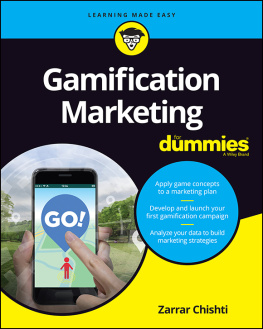
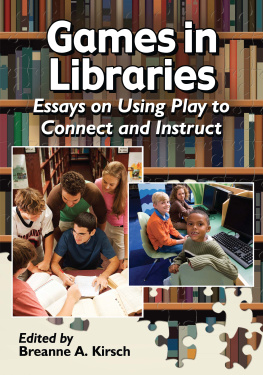

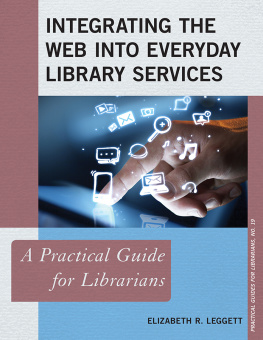
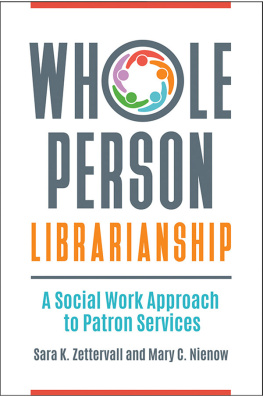
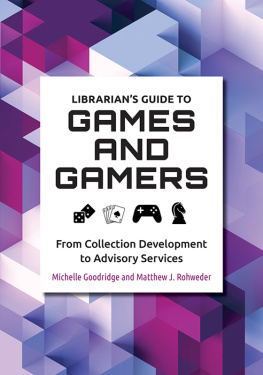
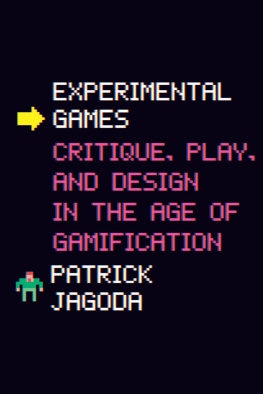
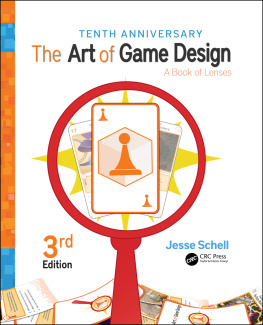
 About the Series
About the Series The paper used in this publication meets the minimum requirements of American National Standard for Information SciencesPermanence of Paper for Printed Library Materials, ANSI/NISO Z39.48-1992.
The paper used in this publication meets the minimum requirements of American National Standard for Information SciencesPermanence of Paper for Printed Library Materials, ANSI/NISO Z39.48-1992.